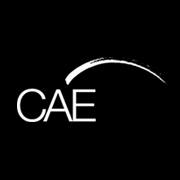In Australia the place of Vietnamese culture and language is defined by patterns of migration. In more recent years, the vast majority of Vietnamese migrants have come to Australia through family connections, and there are growing numbers of skilled migrants.

Vietnamese is the official language of Vietnam. It is spoken by approximately 90 million people in Vietnam and approximately four million Vietnamese people living in other countries around the world, with the majority residing in the United States, Cambodia, France, Taiwan and Australia.
In Australia the place of Vietnamese culture and language is defined by patterns of migration. In more recent years, the vast majority of Vietnamese migrants have come to Australia through family connections, and there are growing numbers of skilled migrants.
Since the 1990s, the place of the Vietnamese language in Australian education has benefited from expanding diplomatic and trade relationships between Australia and its Asian neighbours. The dramatic increase of students studying Vietnamese reflects the growing Vietnamese community in Australia, as well as government policies supporting multiculturalism.
The modern standard version of Vietnamese is Tiê?ng Viê?t. Vietnamese is a tonal language written in the Roman alphabet with additional diacritics for tones. Consequently, pronunciation and intonation play a key role in the learning of Vietnamese, with a clear correlation between sound and writing systems.
Who We Are
The School of Languages is a government school which specialises in languages education. Since its establishment in 1986, this unique South Australian school has supported thousands of students to pursue their interest in languages learning and to experience the joy of embracing another culture.
The school was initially founded as a secondary school for students from all three sectors. In 2000 the school introduced its first classes for students from Reception to Year 7. Since then our primary classes have continued to grow in popularity and demand.
Our Mission
The School of Languages aims to enhance access, choice and continuity in language learning for South Australian learners, through the provision of quality programs in a broad range of languages R-12, that complement and supplement languages programs offered in mainstream schools and ethnic schools.
Our Values
Our Unique Context
Students from Government, Catholic and Independent schools come together after school hours to learn the language of their choice, which is not available in their home school. Lessons are held once a week in a friendly environment of committed professionals and motivated students. This provides for a sustained focus and time for extending students’ learning through a wide range of activities.
Teaching Centres
Our classes are held in schools across Adelaide, with Adelaide High School being the largest centre. Approximately 25 other teaching centres offer a variety of languages at various year levels, in response to local demand.
We give special acknowledgement and appreciation to the many schools across Adelaide that host our programs, thus enabling students and their families to benefit from learning a language.
Choosing To Learn A Language
Studying another language offers many rewards, including:
being able to communicate, interact and negotiate within and across languages and cultures
understanding one’s own and others’ languages, thus improving literacy skills, including in English
understanding selves and others, and the diverse ways of knowing, being and doing
further developing cognitive skills through thinking critically and analytically, solving problems, and making connections in learning
becoming more competitive in the global market.
Languages Taught
A wide range of languages is available through the school, both at primary and secondary levels.

The Vietnamese writing system is an adapted version of the Latin alphabet, with additional diacritics for tones and certain letters.Vietnamese syntax conforms to Subject-Verb-Object word order. Nouns in Vietnamese are marked by special classifiers.Pronouns are correlated with gender of th...

This beginners’ course is designed for people who want to use Vietnamese to communicate with family and friends, with people in the workplace, for travel purposes and for a better understanding of Vietnamese people through cultural insights and inter-cultural skills.
© 2025 coursetakers.com All Rights Reserved. Terms and Conditions of use | Privacy Policy